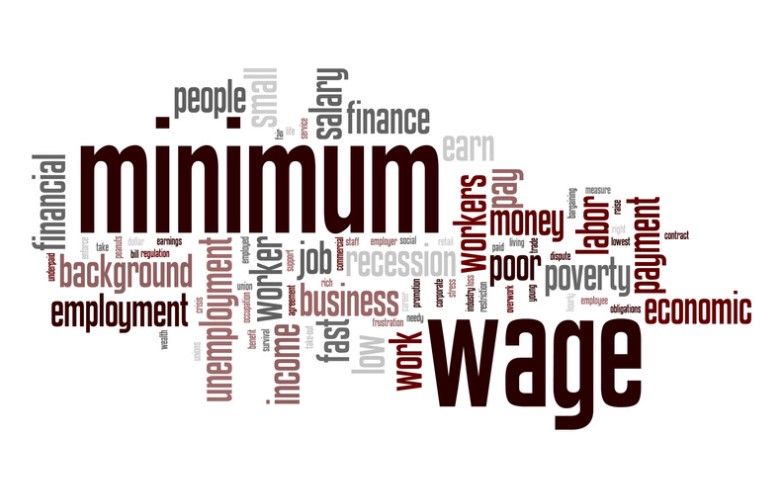Welcome to our comprehensive guide on understanding minimum wage in Newfoundland! Whether you’re a worker, an employer, or simply curious about the regulations surrounding minimum wage, this article is here to provide you with all the information you need. Newfoundland has its own unique minimum wage laws that differ from other provinces in Canada.
So if you’re wondering why the minimum wage varies across the country, what the current rate is in Newfoundland, and how it impacts workers and the economy, keep reading! We’ll also explore any exceptions to the minimum wage in Newfoundland so you can have a complete understanding of this important topic. Let’s dive right in!
Why the Minimum Wage is Different Across Canada?

The minimum wage in Canada is determined by each province and territory, which means that it can vary from one region to another. But why is there such a discrepancy across the country? Well, several factors come into play.
The cost of living varies greatly from province to province. For example, cities like Vancouver and Toronto have significantly higher living expenses compared to smaller towns in rural areas. To account for this difference, provinces with higher costs of living tend to set their minimum wages at a higher rate.
Another consideration is the local economy and job market conditions within each region. Provinces with stronger economies and low unemployment rates often choose to set their minimum wage slightly higher as an incentive for workers or as a way to attract talent.
Additionally, provincial governments take into account economic indicators such as inflation rates and average earnings when determining the appropriate minimum wage level. This ensures that workers are fairly compensated based on prevailing economic conditions.
What is the Current Minimum Wage in Newfoundland?
The current minimum wage in Newfoundland is an important topic for both workers and employers. As of now, the current minimum wage in Newfoundland and Labrador is set at $14.50 per hour. And, this minimum wage in Newfoundland will be expected to increase to $15.50 per hour in October 2023.
This modest increase reflects the government’s effort to ensure fair compensation for workers while considering the economic conditions of the province. The minimum wage helps to establish a baseline income that allows individuals to meet their basic needs and support themselves or their families.
It’s worth noting that different provinces across Canada have varying minimum wages due to factors such as cost of living, regional economies, and local labour market conditions. This means it’s essential for individuals residing in Newfoundland to understand what they are entitled to under provincial legislation.
How Often Is Minimum Wage Updated in Newfoundland?

Minimum wage is an important aspect of labour regulations that aims to provide fair compensation for workers. In Newfoundland, the minimum wage is subjected to periodic updates to keep up with the changing economic landscape and ensure employees receive a decent average income.
The frequency of Newfoundland’s minimum wage updates depends on factors such as economic conditions, inflation rates, and government policies. Generally, it is recommended that minimum wages be reviewed at least once every year to reflect changes in the cost of living and maintain their effectiveness.
To determine whether an update is necessary, provincial governments often consult with stakeholders, including businesses, trade unions, and advocacy groups. These consultations help gather insights from different perspectives and ensure the decision-making process takes into account diverse interests.
Once a decision has been reached regarding any adjustments to the minimum wage rate, it usually goes through a legislative process before being implemented. This ensures transparency and allows for public input before finalizing any changes.
Impact of Minimum Wage on Workers and the Economy
The minimum wage in Newfoundland plays a crucial role in shaping the lives of workers as well as impacting the overall economy. For workers, an increase in minimum wage means a higher income, which can lead to improved living standards and greater financial stability. With more money in their pockets, individuals may have increased purchasing power, allowing them to meet their basic needs and even contribute to local businesses.
However, it’s essential to consider both sides of the coin when discussing the impact of minimum wage on the economy. While some argue that increasing the minimum wage leads to job losses or reduced hiring rates among small businesses due to increased labour costs, others believe that higher wages can stimulate consumer spending and boost economic growth.
One potential positive effect is that raising the minimum wage could reduce income inequality by narrowing the gap between low-wage workers and those earning higher incomes. This can help address issues related to poverty and promote social equity within communities.
Are There Any Exceptions to the Minimum Wage in Newfoundland?

When it comes to the minimum wage in Newfoundland, there are a few exceptions that need to be considered. While the majority of workers are entitled to receive the minimum wage set by the government, there are certain circumstances where this may not apply.
- One example is for employees who receive tips as part of their compensation. In these cases, employers have the option to pay a lower base rate and make up the difference with tip income. However, it’s important to note that even if an employee receives tips, their total earnings must still meet or exceed the minimum wage.
- Another exception applies to certain industries and occupations where specialized skills or experience are required. These include professions such as live-in caregivers, farm workers, social workers and fishing industry employees. In these cases, specific regulations may exist regarding wages and working conditions.
- Additionally, there may be exceptions for individuals who are participating in training programs or apprenticeships. These programs often involve a combination of on-the-job training and classroom instruction while receiving a lower wage than the standard minimum.
- Both employers and employees must familiarize themselves with these exceptions to ensure compliance with labour laws in Newfoundland. By understanding when these exceptions can apply, both parties can avoid any potential issues related to minimum wage requirements.
Conclusion
The minimum wage system in Newfoundland and Labrador is a complex yet important topic. We hope that this comprehensive guide has provided you with the necessary knowledge and understanding of what the current minimum wage regulations are, how they affect employers and employees alike, as well as any potential changes or updates to these regulations. With your newfound knowledge on this subject matter, you will be able to make informed decisions regarding wages for yourself or those working within your business.
FAQs – Minimum Wage in Newfoundland
1. Will minimum wage increase again in 2023?
However, some part-time, temporary, and low- or minimum-wage workers in Canada still face financial difficulties. The federal minimum wage will increase from $15.55 to $16.65 per hour on April 1st, 2023, to reflect inflation.
2. What is a living wage in Newfoundland?
A living wage in Newfoundland refers to the minimum income required for individuals or families to meet their basic needs and maintain a decent standard of living within the province. It takes into consideration factors such as housing, food, transportation, healthcare, childcare, and other essential expenses. The specific amount varies depending on various factors like family size, location, and household composition.
In Newfoundland, the current estimated living wage is approximately $19.50 per hour for a single adult working full-time, which translates to an annual income of around $40,000. This calculation ensures that individuals can cover their basic needs without relying on social assistance, while also allowing for some discretionary spending and savings.
3. Where is the highest minimum wage in Canada?
The smallest hourly wage an employee can receive is known as the minimum wage. At $16.77 per hour, Yukon now holds Canada’s highest provincial minimum wage.
4. Is it cheap to live in Newfoundland?
Is it expensive to live in Newfoundland? No. Compared to other Canadian provinces, Newfoundland is thought to be a more affordable place to live. First and foremost, housing costs are lower than the national average.











